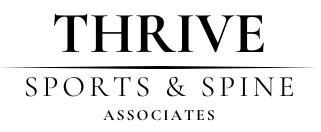Why Magnesium Matters for Muscle Recovery and Chiropractic Results
When you’re focusing on peak performance, recovery, and musculoskeletal health, you probably think about movement, chiropractic adjustments, nutrition and sleep. But there’s another key piece that often gets overlooked: the mineral magnesium. A recent systematic review shows that supplementing magnesium can reduce muscle soreness, improve recovery and protect against muscle damage in physically active people. PMC
As a chiropractor who helps people optimize their neuromuscular system, I want you to understand how magnesium fits into the bigger picture of structural, nervous system, and recovery-based care.
What the Review Found
The review looked at studies where magnesium supplementation (MgS) was used by physically active individuals. Key findings included:
MgS reduced delayed onset muscle soreness (DOMS) in several trials.
In athletes undergoing intense training, MgS appeared to provide a protective effect on markers of muscle damage (e.g., creatine kinase, lactate dehydrogenase).
Physically active individuals may need ~10-20% more magnesium than sedentary people to support muscle recovery and performance.
The review pointed out that type, timing and dosage of supplementation still need more research—but the evidence is strong enough to consider magnesium as part of a recovery strategy.
Why This Matters for Chiropractic Care & Recovery
When you come in for chiropractic care, the goal is often to restore optimal joint motion, reduce nerve interference, relieve muscle tension and support your body’s ability to heal. But for that to happen efficiently, your body must have the resources and internal environment to respond well. Here’s how magnesium supports that:
Magnesium plays a role in neuromuscular transmission, muscle contraction and relaxation—which means fewer spasms, less muscle tension, and better tissue responsiveness.
When muscles are less sore, less damaged and better recovering, they hold adjustments more reliably, function better, and respond more predictably.
Reduced muscle soreness and damage means less compensatory strain on joints, less protective guarding by muscles, and a calmer nervous system— all of which enhance the outcome of chiropractic interventions.
By integrating magnesium support (through diet, maybe supplementation, and monitoring) into your recovery plan, you create a multi-layer strategy: structure (chiropractic), movement (exercise), and recovery (nutrition/minerals).
Actionable Strategies for You
Here are practical steps you can take (and what I may check in your intake/sessions) to support magnesium and enhance your chiropractic results:
Dietary sources of magnesium: nuts (almonds, cashews), leafy greens, whole grains, beans, and seeds—prioritize these in your meals.
Consider appropriate supplementation (under supervision): physically active individuals may benefit from a magnesium supplement in the 300-500 mg/day range, especially when training heavy, traveling, or recovering from injury (as the review suggests).
Timing: Some evidence suggests taking magnesium 1–2 hours before physical activity may help; at the least, ensure consistent daily intake, including on non-training/rest days.
Chiropractic, sleep, movement & minerals: When we adjust joints and calm the nervous system, we also review sleep, movement patterns and nutrition—magnesium becomes part of the recovery toolkit.
Monitor soreness, recovery and function: If you’re sore for days after movement, holding compensatory patterns, or not responding well to adjustments, magnesium status may be one piece of the puzzle.
Conclusion
Your body is a highly integrated system. Chiropractic care helps restore structure and nervous system balance, but the internal biochemical environment must support that restoration. Magnesium is a key mineral in that environment—supporting muscle recovery, reducing soreness, and allowing your body to absorb the benefits of treatment, training and movement.
If you’re serious about getting the most from your care, your workouts and your recovery, don’t overlook magnesium. Let’s incorporate it into your holistic plan.
Reference: Effects of magnesium supplementation on muscle soreness, performance and recovery. PMC 11227245.
https://pmc.ncbi.nlm.nih.gov/articles/PMC11227245/












